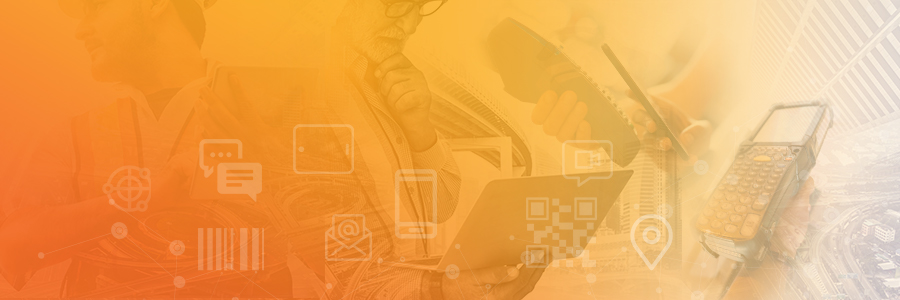
A top concern for many companies right now is whether they can function smoothly amid the COVID-19 crisis. It has disrupted everything from supply chains to consumer spending and has left companies scrambling to set up business continuity plans. For many companies, COVID-19 has taught them an unexpected lesson1 on how to manage their supply chains during times of crisis.
As coronavirus cases have surged worldwide, so have the number of companies asking their employees to work from home, with many North American businesses implementing remote work policies between February and March 2020. However, hackers have been exploiting the growing remote workforce, as many do not have the proper infrastructure in place to protect their companies from cyberattacks. According to the Ponemon Institute’s 2019 Global State of Cybersecurity in Small and Medium-Sized Businesses more than one third of small and medium-sized businesses do not have an incident response plan in place for responding to data breaches and cyberattacks.2 This is despite 60% of the same study participants experiencing a loss or theft of sensitive data in the previous 12 months.
Another impact on today’s businesses is the drastic drop in consumer spending and what it will take to reassure consumers that it is safe to shop again in-store once pandemic measures have lifted. Consumer spending was the biggest driving force of Canada’s economic growth in 2019, but with the COVID-19 pandemic upending this trend, economy frugality has become a way of life for many. In fact, nearly half of all Canadians recently surveyed by Statistics Canada (47.2%) reported that the crisis would have little to no impact on their ability to meet financial obligations or essential needs, as they become more discerning in how they spend their dollars.3
The COVID-19 global pandemic has made us all feel vulnerable, but it has also forced nearly every industry to rethink how they do business because, unfortunately, no one is going back to “business as usual,” at least not for the rest of the calendar year. Those who have previously hesitated in investing in a digital strategy are now fast-tracking their companies through digital transformation efforts to survive in the current climate and position their companies for what is coming next.The COVID-19 global pandemic has made us all feel vulnerable, but it has also forced nearly every industry to rethink how they do business because, unfortunately, no one is going back to “business as usual,” at least not for the rest of the calendar year. Those who have previously hesitated in investing in a digital strategy are now fast-tracking their companies through digital transformation efforts to survive in the current climate and position their companies for what is coming next.
The biggest takeaway from this is that it is never too late for businesses to adjust. Some of the changes introduced may even remain after the COVID-19 pandemic restrictions are lifted. Here are just a few of the mobile technologies various industries have invested in that have allowed them to stay operational despite the introduction of social distancing guidelines, an increase in remote working and travel restrictions:
- Real-time inventory management helps retailers plan stock according to demand: Coca-Cola recently announced that it will be halting its brand marketing efforts to focus more on areas critical to the business like stock management by “…working with retail partners to focus on core SKUs in order to better keep its most in-demand products in stock.”4 Mobile devices powered by SOTI MobiControl can be used to perform inventory checking, automate orders once high-demand stock is low, receive orders and manage pricing, among other business-critical tasks that can help improve workflows.
- Track-and-trace technology no longer a “luxury” for logistics providers, it is essential: The COVID-19 pandemic has proven that being able to accurately oversee product fulfillment and delivery on a 24/7 basis is vital to managing supply chain performance. Supply chains need to be reimagined in new ways, with a strong focus on mobility for resilient and sustainable operations through disruptions like the novel coronavirus. Companies operating in a mobile-first environment need to have the ability to build apps faster and more cost-effectively, securely manage their mobile devices and IoT endpoints, have mobile tech issues resolved remotely and get actionable data insights to improve their business operations.
- Telemedicine helps healthcare providers manage capacity, limit exposure to COVID-19 and deliver personalized care: SOTI Snap empowers home healthcare providers with the ability to easily create apps that allow patients to communicate and share critical information with doctors and nurses when they are at home. This limits the exposure of healthcare providers to potential COVID-19 infected patients. Additionally, wearable technologies like smartwatches aid in the real-time collection of patient data for remote monitoring, which is critical as the public continues to adhere to self-isolation measures. Moreover, a recent HealthTech article shares that healthcare data from wearables is helping healthcare providers make more informed decisions with advanced insights that go beyond a patient’s level of physical activity.5 Cutting-edge wearable devices can now monitor everything from a patient’s blood pressure to their oxygen saturation, providing physicians with news ways of staying informed about their patients from afar.
No matter which industry your business operates in, uncertainties about the duration and extent of the pandemic understandably make planning for the future a challenge. However, companies who use this time wisely to plan their mobile strategy will create an invaluable opportunity to outpace their competition once regular business operations return. So, what are you waiting for? The time to invest in mobility and IoT solutions is now.
- Harvard Business Review, Coronavirus Is a Wake-Up Call for Supply Chain Management
- Keeper, Exclusive Research Report: 2019 Global State of Cybersecurity in Small and Medium-Sized Businesses
- Statistics Canada, Canadian Perspectives Survey Series 1: Impacts of COVID-19 on job security and personal finances, 2020
- Strategy, Coca-Cola hits pause on its brand marketing
- HealthTech, Weighing the Pros and Cons of Wearable Health Technology



